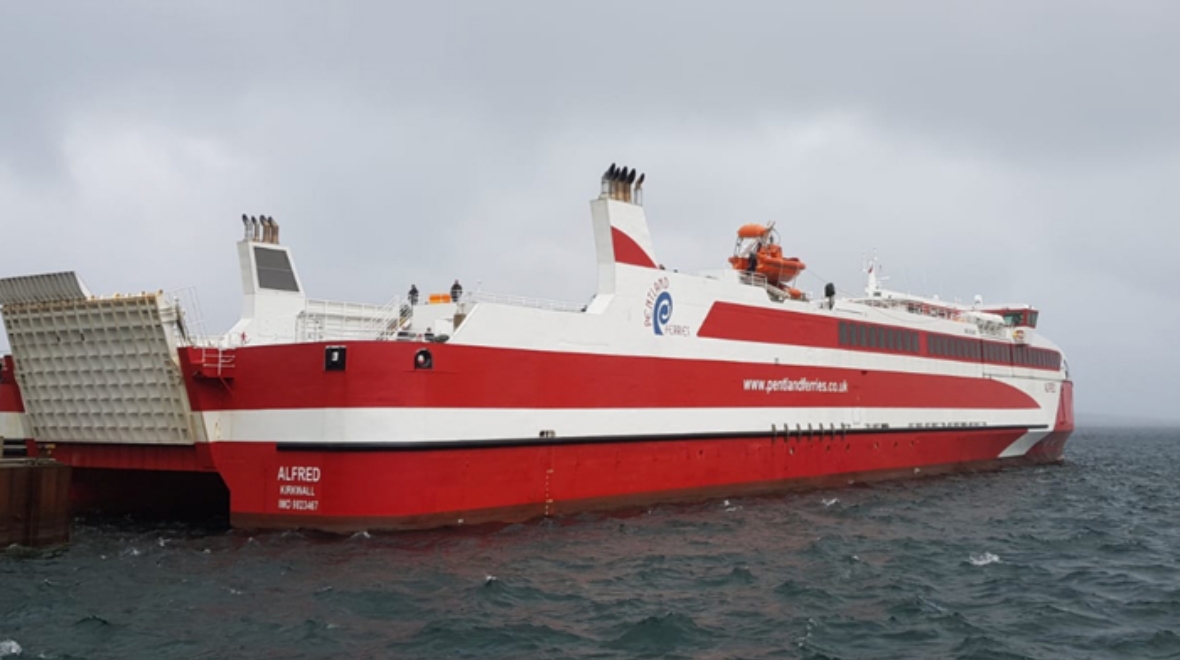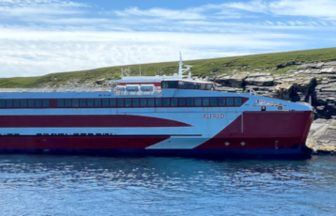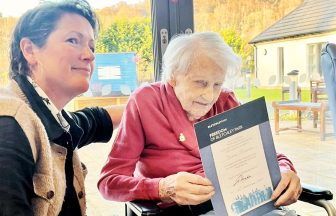Passengers onboard a ferry that ran aground on an uninhabited Scottish island have won £50,000 in compensation.
MV Alfred, operated by Pentland Ferries, grounded at Swona Island on the Pentland Firth on July 5, 2022 with more than 80 passengers and crew members onboard.
The Marine Accidents Investigations Branch found the vessel’s captain “almost certainly fell asleep”, allowing it to swing towards land with people onboard suffering injuries and almost all vehicles being damaged.
The roll-on roll-off passenger ferry was refloated and towed to its destination at St Margaret’s Hope after it was evacuated.
Digby Brown Solicitors said civil action against Pentland Ferries for four people affected had been settled.
Compensation totalling £50,000 was recovered in out-of-court settlements before the MAIB report was published, the solicitors said.
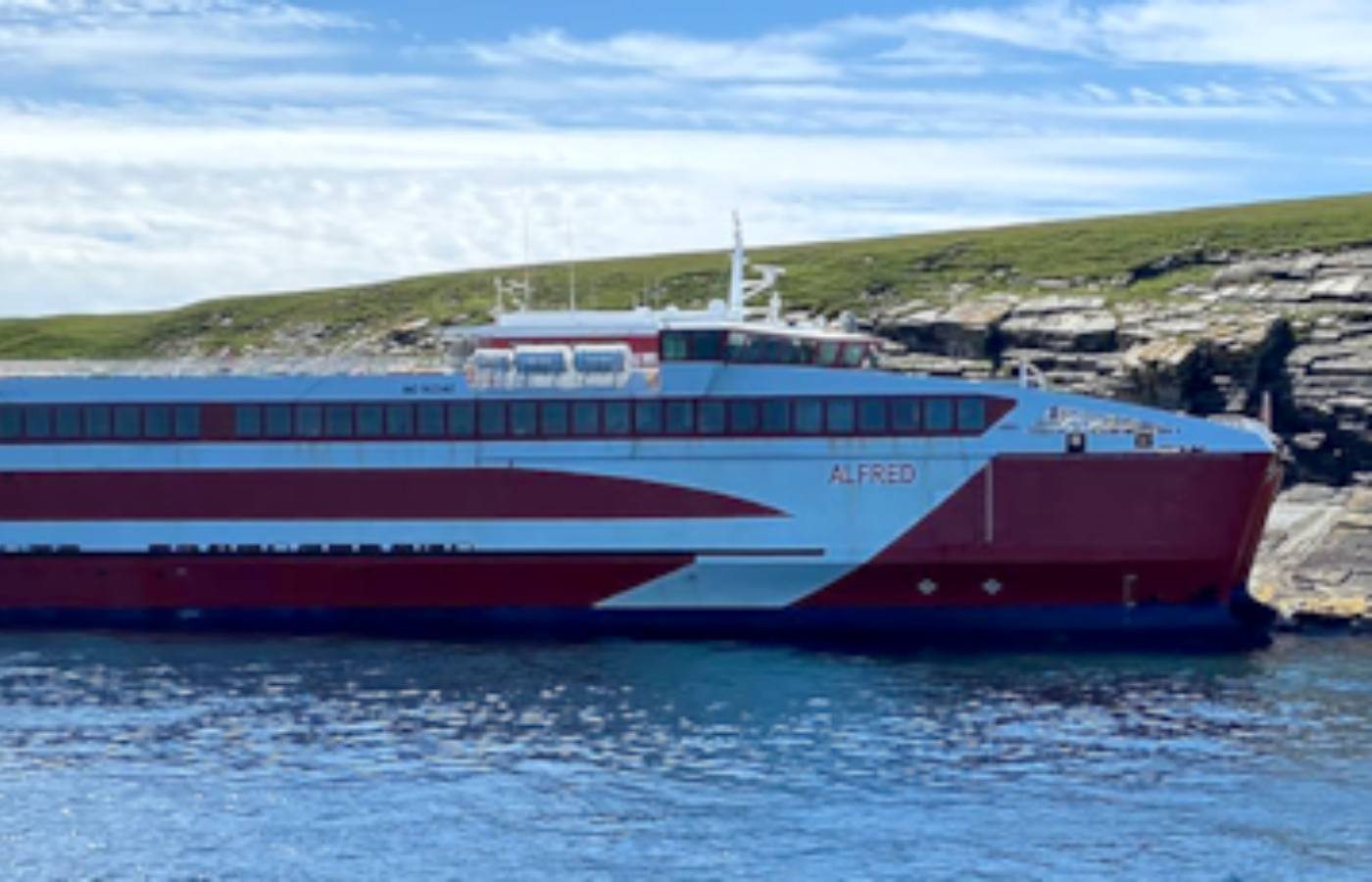 MAIB/RNLI
MAIB/RNLIMark Gibson, partner at Digby Brown, said: “As this week’s MAIB report confirmed, this incident was the result of a catalogue of avoidable failures and it is a real shame that Pentland Ferries has stopped short of apologising to those affected.
“Our clients suffered meaningful injuries and losses after this incident – some lost earnings after being left temporarily unable to work while others incurred additional costs like medical treatment so recovering compensation helps remedy these losses.
“Thankfully, all our marine accident claims concluded some time ago via out-of-court settlements long before the publication of the MAIB report.
“When it comes to keeping people safe, especially on marine vessels, it is simply not enough to heed warnings in hindsight – management have a legal duty to conduct risk assessments, address issues and prevent accidents happening in the first place.”
Pentland Ferries said it welcomed the release of the report.
Managing director, Helen Inkster, said: “We very much welcome the publication of the MAIB report and continue to digest its contents.
“We stand by the premise of the report, which is not to assign blame or liability, but rather to ensure future accidents across the marine industry are prevented.
“While we will never be complacent, we are satisfied that all the actions that could be taken by Pentland Ferries to ensure passenger safety have already been taken.
“We will always ensure that our vessels have detailed procedural plans, the right people, and rigorous training regimes in place.”
What did the MAIB report find?
Three key safety issues were identified in the Marine Accidents investigation including that the captain of the vessel “routinely passed too close to land” and that “fatigue led to loss of awareness at a critical point in the vessel’s passage.”
There was also found to be a “lack of assurance that procedures were being followed.”
It was recommended that Pentland Ferries “ensure that it captures passenger details and injuries post-accident” and that crew members are “sufficiently well rested” before coming on duty.
Andrew Moll, Chief Inspector of Marine Accidents said: “Lots of safety action has been taken as a result of this accident and I am encouraged by the actions taken by Pentland Ferries to address the issues raised in this report.
“However, this accident offers a wider opportunity for lessons to be learned across the maritime industry.
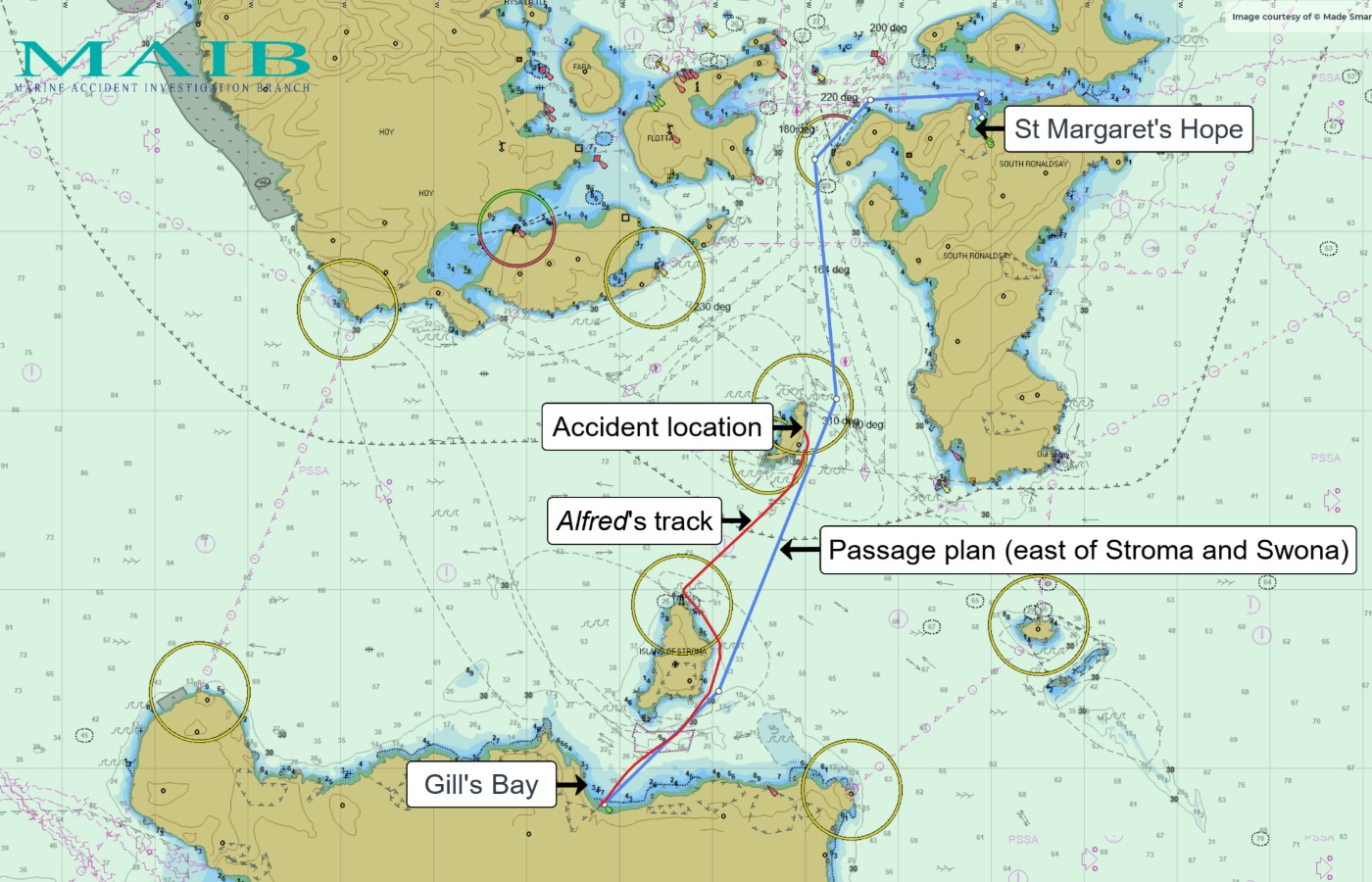 MAIB
MAIB“Alfred’s master routinely operated very close to the coast leaving little margin for error when they found themselves in an unsafe situation.
“Regardless of the type of vessel you are operating, it is critical that a safe passage plan is made and that it is followed.
“Always allow sufficient sea room to enable action to be taken in good time if things are not going to plan.
“On the afternoon of July 5, 2022, the master almost certainly fell asleep and allowed the ferry to swing towards land.
“Crew should always be sufficiently well rested when coming on duty.
“Finally, this case highlights the importance of management assuring themselves that plans and procedures they have put in place are actually being followed.
“If you have management oversight of a vessel or maritime operation, ask yourself; do I know that our crews and front-line staff are following our procedures, and are our plans fit for purpose in a real-life emergency situation?”
Follow STV News on WhatsApp
Scan the QR code on your mobile device for all the latest news from around the country


